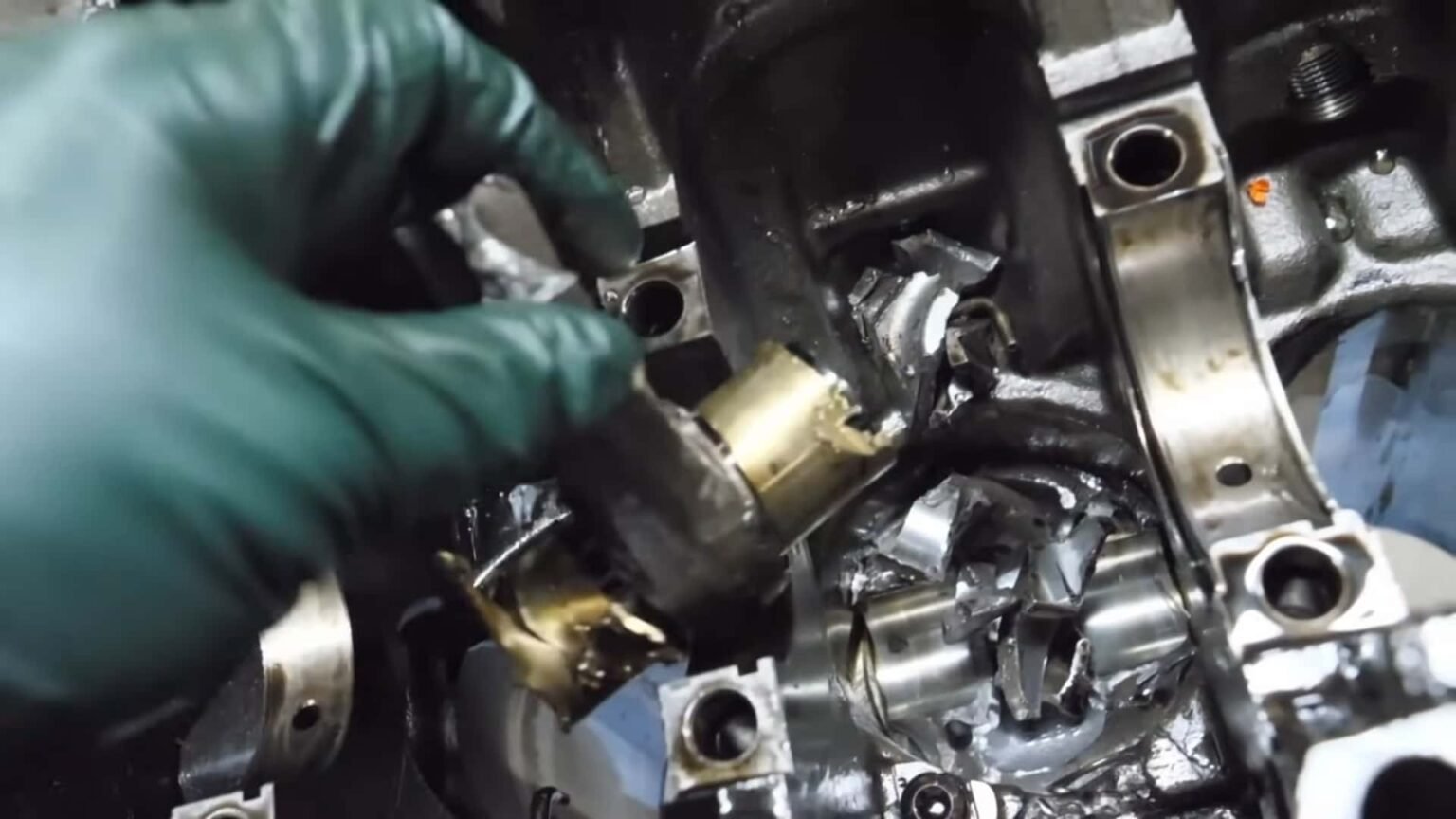The latest teardown video from the I Do Cars YouTube channel opens with a window to the soul of this Dieselgate-era Volkswagen engine. That’s never a good thing, but it’s just the beginning of the absolute carnage inside this 2.0-liter TDI diesel. And with everything torn apart, it’s clear what killed the engine. Here’s a hint: diesels don’t like high rpm.
This power plant used to be a CKRA four-cylinder diesel used in the Passat from 2012 through 2014. When new, this engine developed a nonchalant 140 horsepower but cranked out 236 pound-feet of torque. It wasn’t built for speed, but connected to an available six-speed manual transmission, the mid-size sedan had some fun potential. You probably see where this is going.
Before the teardown begins, we can already see a small hole in the block. A closer look reveals a second hole and bits of metal sticking out. Clearly something bad happened inside. It’s so bad that the crankshaft is completely locked up. But as the components come off, we’re lulled into a false sense of security. Instead of finding broken pieces or the infamous “forbidden glitter” indicative of spun bearings, everything looks healthy. The head and camshafts look really good, suggesting this engine was well-maintained. The timing system, often a culprit in engine maladies, is fully intact.
Then the oil pan comes off, and we finally see why the crank doesn’t turn. The remains of the number three piston and rod are strewn throughout the lower end. The rod snapped in the middle, sending metal everywhere and nearly splitting the block in half. Deep gouges in the crankshaft also render it useless. But then we notice something. It appears other rods are bent, too.
What could cause all this? There were no signs of excessive heat or oil starvation. Hydrolocking could cause rods to bend and break, but there was little evidence of water or other fluids inside the engine. We’re left with the dreaded money shift—the term commonly used when a driver inadvertently downshifts instead of upshifting. And it usually happens during spirited driving.
Perhaps the driver went into first instead of third, or second instead of fourth. In either case, it would cause the engine to seriously over rev, and that could definitely lead to the damage seen here. As always, the term money shift truly lifts up to its name.
Source:
I Do Cars / YouTube
Read the full article here



